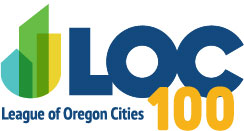LOC News
City Action Needed to Maximize Federal Broadband Funding
HB 3201 will avoid leaving any federal funds on the table and help close the digital divide in communities across Oregon. The bill had a second hearing March 9 in the House Economic Development and Small Business Committee. LOC is asking its members to contact their state Representatives to ask them for their support of HB 3201 with the -1 and -2 amendments.
The LOC is supporting the -1 and the -2 amendments to HB 3201. The -1 amendment clarifies in statute the use of the Administrative Procedures Act, which holds the Oregon Broadband Office (OBO) and the Oregon Business Development Department (OBDD) accountable to follow their rules and processes laid out for the broadband grant process. The -2 amendment guarantees a transparent challenge process is created for the grant programs. This amendment is purposefully not prescriptive because ARPA and BEAD funding have separate challenge processes. One process cannot be put into statute without affecting its alignment with the other process. The -2 ensures a process is created but can be adapted to align with each funding source.
If LOC members live in Amity, Astoria, Aumsville, Barview, Bay City, Cannon Beach, Carlton, Cave Junction, Clatskanie, Columbia City, Detroit, Drain, Durham, Elkton, Garibaldi, Gates, Gearhart, Grants Pass, Gresham, Happy Valley, Hillsboro, Idanha, Lafayette, Lake Oswego, Lyons, Manzanita, McMinnville, Mehama, Mill City, Myrtle Creek, Nehalem, Oakland, Rivergrove, Rockaway Beach, Roseburg, Seaside, Sheridan, Springfield, Stayton, Sublimity, Sutherlin, Tillamook, Tualatin, Turner, Warrenton, West Linn, Wheeler, Willamina, Yamhill or Yoncalla, your Representative serves on the House Economic Development and Small Business Committee. We are asking you to contact your Representative and ask them to support HB 3201 with the -1 and -2 amendments.
Problem:
Federal agencies responsible for distributing federal funds have advised the Oregon Broadband Office that Oregon may not receive all of the funds to which the state is entitled because of statutory restrictions in the current Oregon Broadband Fund.
Contact your Representative and ask for their support.
Below are a few key points to consider:
- HB 3201 is the product of a broadband workgroup that included a broad range of stakeholders, including representatives from the Oregon Broadband Office (OBO), front-line community leaders, and public and private sector representatives.
- HB 3201 removes barriers in Oregon statute that conflict with federal guidance for implementing federal broadband programs, thus removing a risk that may impact Oregon’s federal allocation of broadband money.
- The bill removes strict speed definitions for unserved and underserved communities and empowers the Oregon Broadband Advisory Council (OBAC) to debate and set standards consistent with changing technology and varying funding sources. Having specified speed definitions in statute requires going back to the legislature every few years to update speeds and may continue to drive the digital divide as technology surpasses defined speeds. Having the flexibility of OBAC to define speeds allows Oregon to keep up with changes in technology.
- The bill creates a competitive grant application process by removing the right of first refusal for incumbent providers and replacing it with a transparent public process that ensures any conflicts are identified and addressed early in the process, instead of at the end.
HB 3201 is supported by a growing coalition, including many LOC members who reached out after our February 10 Bulletin article and LOC action alerts. Our updated one-pager, FAQ, and document comparing the federal programs and the Oregon Broadband Fund are available as a resource.
If you have any questions about the bill, please contact LOC Lobbyist Nolan Pleše for more information.
Contact: Nolan Pleše, Lobbyist – nplese@orcities.org
Last Updated 3/10/23
View all LOC news

